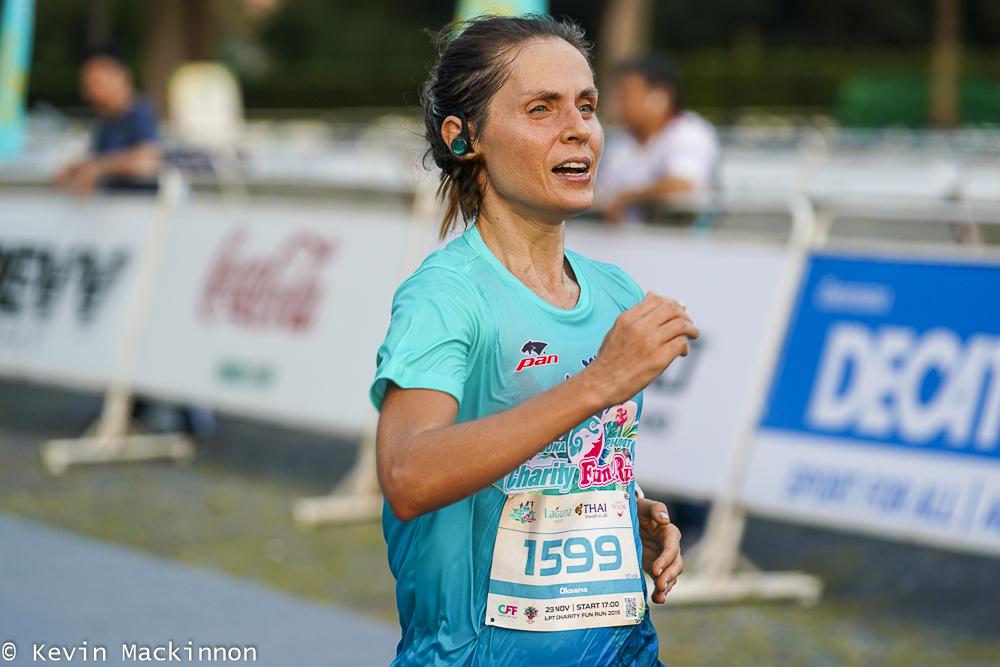Sweat science – the numbers behind rehydrating in the heat
Let’s talk about sweat baby!
 Photo by:
Kevin Mackinnon
Photo by:
Kevin Mackinnon
I love summertime. Long days, lots of sunshine, and swimming in lakes without wearing a wetsuit!
I even like the way a long workout in the heat of summer makes you sweat. It is just so satisfying to return home after a long run or ride and strip off your drenched jersey or tank top. All that sweat makes you feel like you really worked out.
Unfortunately, all that sweat also needs to be replaced. There are a ton of articles out there that will tell you all about how to rehydrate during your exercise, and this is what most triathletes focus on.
Unfortunately, post-exercise rehydration is just as important. When exercising for long durations in high heat, it is difficult, or impossible, to completely replenish your fluid reserves during your workout. This means you are going to finish a workout in a state of relative dehydration. Combine this with the daily, or sometimes twice daily, exercise routine of many triathletes, and you might find yourself in a situation where that dehydration builds over the course of several days, to the point where it is limiting your performance.
Once you have accepted that you are probably going to finish a summertime workout at least slightly dehydrated, the next step is to measure just how much water you have lost. Because this amount will vary from person to person, the best way to do this is to weigh yourself before and after a given workout. You don’t need to do this for every workout, but it can be good to do this a few times, in different weather conditions, and after a few different types of workouts. This will give you a good idea as to how much water weight you lose in different scenarios. Keep drinking like normal during these workouts – you are not trying to find out how much you sweat, but how much water weight you lose even when you do drink.
Once you know how much you are losing, you need to know how much to replenish. The answer is – more than you lost! In fact, you need to drink up to 150 per cent of what you lost by weight to return to full hydration. Since water weighs 1 kg per litre, that means that if you lost 1kg of weight during your workout session, you need to drink up to 1.5 L of water to return to a normal hydration status. That is in addition to any “normal” drinking you would do to satisfy your regular daily needs.
Now that you’re staring at the nice, tall 1.5 L glass of water that you’ve poured yourself, you’re asking me – how am I going to drink all of that? This question illustrates why accumulated dehydration can be a problem – it’s not necessarily easy to drink all that water. There are some simple things that will help. First off, some salt and carbohydrates will tend to make the water more palatable. The salt will also increase the speed and amount of water absorption, and carbohydrates will help with overall recovery as well. Yup, it seems that commercial sports recovery drinks have some value after all! However, they are not all created the same. The most important thing is to pick one that you like, as you are going to be drinking a lot of it. The “endurance” or “recovery” formulas also tend to contain more sodium. In fact, in a quick scan I did of some major brands, not one recovery drink contained the amount of sodium required for maximal water uptake. This is good, as too much salt intake leads to potassium loss, which can be its own problem – so don’t just pour the salt shaker into your water glass either!
If you really don’t want to chug down a massive quantity of sports drink after every session, some other options are prepared vegetable juice, soup or higher sodium solid foods such as a peanut butter and jelly sandwich. Combine this with a large glass of water and you are well on your way to replenishing your lost fluids.
So, keep drinking during your workouts, but don’t forget that drinking water after your workout is just as important. Do that and you’ll be nailing your training sessions right through the heat all summer long.
Darian Silk is a triathlon coach and Certified Exercise Physiologist based in Toronto. Read more about Darian at www.teamatomica.com or email him at darian@teamatomica.com.
